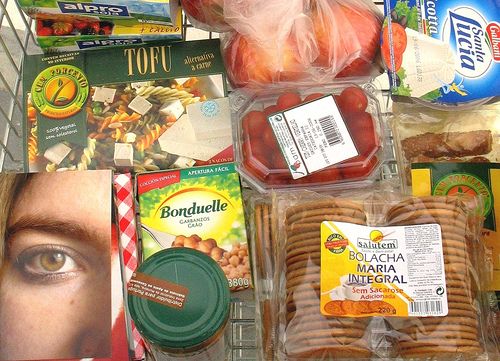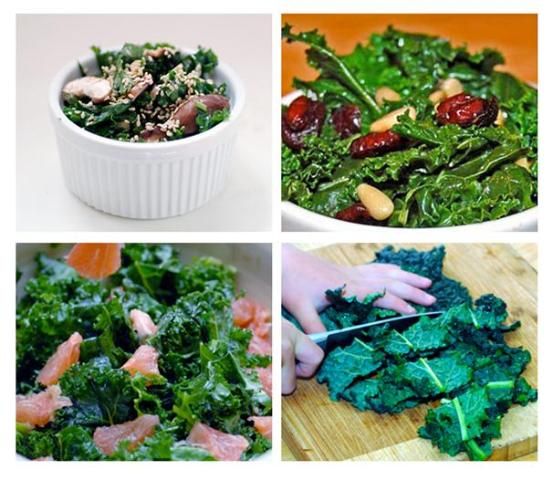A Healthy Choice: Vegetarianism
Well-balanced vegetarian diets can be nutritious and provide a variety of health benefits. Vegetarians are less likely to develop chronic diseases, such as diabetes, hypertension, coronary artery disease, and certain cancers (Melina, Craig, and Levin 2016).
There are several types of vegetarian diets. Lacto-ovo vegetarians do not eat animal meats but do eat animal products such as eggs and milk in addition to plant foods. Lacto-vegetarians include milk but not eggs in their diets, and ovo-vegetarians include eggs but not milk. Vegans are vegetarians that do not allow any animal products in their diet.
Health Implications
Vegetarians are at higher risk for several nutrient deficiencies, including iron, vitamin B12, calcium, and zinc. These deficiencies can be avoided with well-planned diets that incorporate a variety of fruits, vegetables, legumes, and dairy products. In addition, consumption of fortified foods may substantially increase the intake of many essential nutrients (Melina, Craig, and Levin 2016).

Credit: bricolage.108, used here under Creative Commons license CC BY-NC-SA 2.0. Source: http://flic.kr/p/fV4z3
Vitamin B12
The Recommended Dietary Allowance (RDA) for vitamin B12 is 2.4 micrograms (µg) per day for healthy adults (IOM 1998). Plant foods generally are not reliable sources of vitamin B12. Lacto-ovo vegetarians may get enough B12 from dairy sources and eggs, but vegans need to either eat foods enriched with vitamin B12 or take B12 supplements. Table 1 lists several vegetarian foods that are good sources of B12 (USDA 2017).
Calcium
Calcium is needed in the body for proper bone development and maintenance. The Recommended Dietary Allowance (RDA) for healthy adults up to 50 years of age is 1,000 milligrams (mg) per day. Women over 50 and men over 70 should consume 1,200 mg of calcium per day (IOM 2010). Dairy products, leafy green vegetables, tofu, and dried fruit are all good sources of calcium for vegetarians. Many vegetarian foods are fortified with calcium. Table 2 lists vegetarian food options that are higher in calcium (USDA 2017).

Credit: elenaspantry.com, and used here under Creative Commons license CC BY-NC-ND 2.0
Iron
Iron is an essential nutrient for oxygen transport in the body. The RDA for iron is 8 mg per day for healthy adult males, and 18 mg for females. Pregnant females have increased needs for iron, with the RDA set at 27 mg per day (IOM 2001).
Vegetarians are at higher risk for iron deficiency because the body does not absorb iron from plant sources as efficiently as it can from meat sources (Melina, Craig, and Levin 2016). Iron absorption is enhanced if foods high in vitamin C (such as citrus fruits, tomatoes, or broccoli) are consumed along with iron-containing foods. Table 3 lists some iron-rich vegetarian foods (USDA 2017).
Zinc
Zinc is needed as a cofactor for numerous enzymes in the body. The RDA for zinc in healthy adults is 8 mg per day for females and 11 mg per day for males (IOM 2001). Like iron, zinc is not as readily absorbed from plant sources as it is from meat sources (Melina, Craig, and Levin 2016). Because of this, vegetarians are encouraged to consume levels greater than the set RDA. Whole grains, legumes and seeds are generally good sources of zinc. Table 4 lists several vegetarian foods and their zinc contents (USDA 2017).
Learn More
A UF/IFAS Extension Family and Consumer Sciences (FCS) agent at your local office may have more written information, as well as nutrition classes for you to attend. Also, a registered dietitian nutritionist (RDN) can provide you with reliable food and nutrition information.
Endnotes
Food and Nutrition Board, Institute of Medicine. 1998. Dietary Reference Intakes for Thiamin, Riboflavin, Niacin, Vitamin B, Folate, Vitamin B, Pantothenic Acid, Biotin, and Choline. Washington, DC: National Academy Press.
Food and Nutrition Board, Institute of Medicine. 2001. Dietary Reference Intakes for Vitamin A, Vitamin K, Arsenic, Boron, Chromium, Copper, Iodine, Iron, Manganese, Molybdenum, Nickel, Silicon, Vanadium, and Zinc. Washington, DC: National Academy Press.
Food and Nutrition Board, Institute of Medicine. 2011. Dietary Reference Intakes for Calcium and Vitamin D. Washington, DC: National Academy Press.
Melina, V., W. Craig, and S. Levin. 2016. "Position of the Academy of Nutrition and Dietetics: Vegetarian Diets." J Acad Nutr Diet 116 (12): 1970-1980. doi: 10.1016/j.jand.2016.09.025.
US Department of Agriculture, Agricultural Research Service. 2019. "FoodData Central" FoodData Central Home Page, https://fdc.nal.usda.gov/.